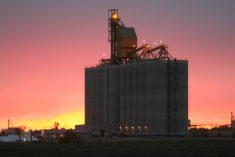OTTAWA (Staff) – The United States government last week vowed to continue the fight against Canada’s supply management protections, despite a defeat in its effort to overturn protective tariffs through trade law.
U.S. trade representative Charlene Barshefsky and agriculture secretary Dan Glickman made it clear they consider the Dec. 2 trade panel ruling in favor of Canada’s tariffs on dairy and poultry imports merely a setback.
“The United States will do everything possible, consistent with our trade laws, to seek the ultimate elimination of these duties and to improve U.S. access to the Canadian market for dairy, poultry, egg, barley and margarine products,” they said in a statement from Washington, D.C.
Read Also

Malting barley exporters target Mexican market
Canada’s barley sector is setting its sights on the Mexican market to help mop up some of the lost demand from China
In Ottawa, government ministers scoffed at the threats.
“I expect them to honor the decision of the panel,” said trade minister Art Eggleton. “We followed the proper process and that’s the end of it.”
However, an opposition agriculture spokesperson quickly suggested Canada should not be so cocky about its win in the North American Free Trade Agreement panel.
Saskatchewan Reform MP Elwin Hermanson said Canada should take the NAFTA victory as a gift of a few more years to make changes needed in supply managed sectors to allow them to compete with imports.
He said a reduction in border protection is inevitable in future trade talks.
“If we are suggesting we are inflexible heading into the next trade negotiations, the opposition of the Americans will become more vigorous,” he said.
“I think we have to show flexibility and willingness to change. We have been given some time and let’s use it to put a plan in place that will let supply management sectors become more competitive.”
From his dairy farm near Estevan, Sask., Robert Cossette made much the same point.
The delegate to DairyWorld Foods sees the dairy production and marketing system evolving away from its traditional concentration on provincial self-sufficiency rules and toward export and expansion.
“I think this (ruling) keeps our supply management rules until 2001,” he said Dec. 6. “We are not sure what happens after 2001 but most of the people I know say whatever happens, we’ll be ready for it.”
In 2001, the trade liberalizing agreements reached at world trade talks in 1993 will have been implemented and new rules, including tariff reductions, are supposed to have been negotiated to take effect.
The next world trade talks begin in 1999.














